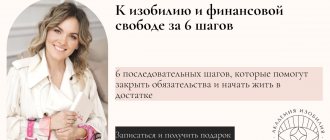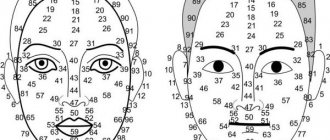- instincts of play, exploration and others. There are several main types.
Self-preservation and survival
Biological instincts
are behaviors that ensure survival.
They are manifested by the need:
- satisfy hunger;
look for a warm place during cold weather;
These are natural instincts, but people know how to control them.
The instinct of self-preservation arises especially clearly in extreme situations. It is believed that the main instinct is self-preservation, since it does not allow one to behave destructively or take risks. It goes hand in hand with fear. Fear is an instinct that manifests itself even in infants when they worry about losing contact with their mother.
Reproduction, parent
Sexual instinct
is one of the strongest, the most basic. Initially, it is perceived as a way to satisfy physiological needs. But at a higher level, it manifests itself as a manifestation of strong feelings between representatives of the opposite sex.
Love is an instinct that is aimed at subsequent procreation. But not all modern people strive for procreation, but this does not apply to intuitive behavior.
Important!
It is the instinct to reproduce that allows people and animals to maintain populations.
If the chain is broken, it leads to the extinction of the species. Parental instinct
is a set of reactions belonging to the same group. In females, it is manifested by caring for the offspring.
Maternal instinct
This is a controversial phenomenon as some women do not experience it. But in some animal species it also spreads to the offspring of other species. For example, there are cases where a duck raised chickens or a cougar fed kittens.
Hunting
This instinct is a form of behavior in men, which was especially pronounced in primitive times, when it was necessary to obtain food.
Now this is manifested by a love of fishing and hunting, but not everyone has it.
Domination and power
This instinct is behavior caused by the need for leadership and power.
People with pronounced dominance lead the crowd, organize and manage. Every group has a leader, even if it is not obvious.
Nothing suppresses the feeling of freedom more than the herd instinct. Mikhail Mikhailovich Mamchich
Social
Human social instincts are a series of behavioral reactions that ensure socialization.
First of all, people manifest altruism, expressed in caring for others, kindness, and a desire for peace. Social instinct is a feature that is not expressed in everyone.
Freedom and independence
This instinct leads to independence.
It occurs in infants who do not allow themselves to be fed or swaddled. With age, a person learns to adapt the desire for freedom to common interests.
Religion
Religious instinct
is a person’s desire to believe in a Higher Power. It does not appear in everyone.
Human instincts are a set of feelings and behavioral reactions. People must be able or manage in order to be fully accomplished as individuals.
Psychologically unstable character: should you be afraid?
What is instinct
Instinct is a person’s innate tendency to engage in complex forms of automatic behavior that satisfy the specific needs of the body. In a narrow sense, instinct is defined as a set of hereditarily determined actions. It manifests itself in behavior aimed at obtaining food, self-preservation, achievement, and the desire to procreate.
Instinct is an unconditioned reflex that forms the principles of animal behavior. Higher animals in their individual development come to modify basic instincts, which can achieve more complex behavioral manifestations. Human instincts, in addition to the biological orientation, that is, satisfying the needs necessary for basic existence, go further and include instincts that satisfy personal needs and intentions (power, dominance, communication).
Instincts are those human needs that arise at the level of the body and physiology.
Sexual instinct or desire?
As we have already found out, instinct is often confused with desire and need - especially when it comes to sexual desire. It would seem so easy to give in to the call of nature, hiding behind the great goal of reproduction, and leave your genes everywhere. Yet “basic instinct” is nothing more than the simple human desire to receive pleasure.
Differences between instincts and reflexes
To better understand what instinct is, it is important to correctly understand how it differs from a reflex. The main difference is that a reflex is a reaction of the nervous system that occurs immediately in response to some stimulus. Some reflexes can be controlled by willpower, but most of them are beyond the control of our mind and will. There are two types of reflexes:
- Absolute reflexes. They are also called “innate” or “specific” reflexes. They are written in genes and are common to all individuals of the same species. They arise regardless of life experience.
- Conditioned reflexes. These are also called "learned reflexes." They are formed throughout life to provide a quick response to positive and negative environmental factors. If a conditioned reflex loses its significance, it weakens and may disappear completely.
Despite significant differences, unconditioned and conditioned reflexes have a common nature and approximately the same trigger mechanism. The nerve impulse received from the receptor travels along a reflex arc and stimulates systems (muscles or glands) that provide a response. All reflexes are automatic and unconscious and are always caused by a stimulus.
Unlike reflexes, instinct is a complex pattern of behavior that is not limited to the activation of a specific muscle or the secretion of a gland. It can be compared to a trigger, the activation of which initiates a complex program of actions. However, this program can be very conditional. Instinct arises as a strong need that must be satisfied. It depends on the animal or person how to satisfy it.
Have human instincts disappeared?
Many famous authors believed that man has no instincts because reason has supplanted them. However, from the point of view of modern psychology, such a statement is incorrect. A person controls his behavior and when making decisions is guided by common sense, not instincts. However, this does not change the fact that many of our desires, goals and aspirations are determined by instincts. The difference between us and animals is that we choose how to satisfy our needs and desires.
The instinct of self-preservation is at our fingertips. In critical situations, it often takes precedence over reason, causing us to panic and behave irrationally. But the older and more experienced we become, the easier it is to cope with panic in critical situations. Another example is mating behavior, which in humans is highly “regulated” by culture. Each of us understands from an early age that there are certain rules that determine what a romantic relationship should be like and on what date you can kiss. However, the very desire to enter into such a relationship is dictated by nothing more than the instinct of procreation.
Thus, no matter how rational a person's actions are, they are still motivated by the most basic instincts. The fact is that instincts do not control our behavior as directly as animals do. But the activation of instinct gives us a strong (sometimes irresistible) desire to perform certain actions. And how we fulfill them depends on ourselves, on our education and upbringing, on our moral and ethical principles. All people have instincts, and they are maintained throughout life, but we restrain them because their uncontrolled expression is condemned in modern society.
Instincts are inherent in absolutely every person
Signs of unconditioned reflexes
The main feature of unconditioned reflexes is innateness. Nature made sure that all functions important for life in this world were reliably recorded on the DNA nucleotide chain. Other characteristic features:
- preliminary training and control of consciousness are not required;
- are specific;
- strictly specific - occur upon contact with a specific stimulus;
- constant reflex arcs in the lower parts of the central nervous system;
- most unconditioned reflexes persist throughout life;
- a set of unconditioned reflexes helps the body adapt to the environment in the early stages of development;
- are the basic basis for the emergence of conditioned reflexes.
Human instincts
The human unconscious represents irrational, physiological animal instincts and reflexes that provide impulses of psychic energy. They are forced to retreat under the influence of consciousness, cultural stereotypes and social norms in order to provide people with an adequate social existence.
Innate human instincts are very strong, even their conscious suppression does not always accommodate their energy, so there are often people who behave inappropriately to the situation because they do not have an adequate blockade of certain forms of behavior arising from biological needs. But thanks to them, a person does not lose motivation for life; they are the driving force behind his behavior. Since instincts differentiate and become more complex as a result of life experience and personality development, man is a creature with the most complex system of instincts. However, it can still be interpreted that needs and their satisfaction are essentially the same in animals and humans. However, such information is very erroneous, so it is important to say that a person has special instincts that are unique to his species, then we will look at three basic instincts: the instinct of reproduction, self-preservation and power. Using them, one person is able to subjugate the will of another and manipulate him for his own purposes.
In the process of raising a man, his desire for power and intimacy is suppressed, it is clear for what reasons. In fact, they are the ones who move a person to achieve a goal; they are a powerful impulse and can set the main line of behavior. But because of fear for his own life, a person often cannot reach his full potential and cannot achieve success. Since fear rules a person's life and self-preservation is based on it, as a result he is at the mercy of his fear. In this sense, the desire to dominate and continue one's race gives a person a greater sense of security than self-preservation based on fear.
From the above it follows that every person is subject to manipulation and a feeling of fear, but its degree depends on the consciousness of each person. If he understands what his fear is, the reason for it, he will be in a better position to eliminate it. It also often happens that people who are afraid of something, sooner or later this is exactly what happens to them. But if the lust for power is very strong, self-preservation becomes weak, and this can lead to tragic consequences. Moreover, since many reckless, rash acts are committed due to infatuation, it also weakens self-preservation, sometimes leading to fatal consequences.
Instinct is the life experience of ancestors who had to fight, go through fear and pain in order to survive. The conscious mind could not withstand the stress and transferred the difficult emotional experience to the subconscious, sealed in the genetic memory. Therefore, when people make instinctive movements, there is part of the anxiety inherited from their ancestors.
A newborn baby cries because he is scared, because there is no caring and loving mother next to him. A man is afraid that food supplies will run out because his ancestors once died during a famine. A man is fighting with a rival for a girl, perhaps one of his ancestors was unable to find a wife, and he is forced to fight to alleviate the inherited fear of loneliness.
Instinct - what is it? Man in nature is a link in the transition from animal to superman, and his consciousness is also tripartite. One part of it relates to the animal world, the other to the human, and the third to the divine. In fact, the animal part is inherited, is unconscious and determines instinctive behavior. Instincts are the baggage of animal experience, that is, what helped them live and survive, accumulated over millions of years and passed on to humans. Nature has preserved in the human gene pool unconditional instincts and reflexes necessary for the survival of offspring. No one teaches a newborn child that he must scream if he wants to eat or change his clothes. The human instinctive mind is responsible for biological survival, the conscious mind is responsible for maintaining relationships, and the supraconscious mind helps develop into an even more intelligent being.
By suppressing and distorting natural biological instincts, man received a lot of energy for the development of consciousness, and therefore for scientific and technological progress. It turns out that modern civilization was created and developed due to suppressed instincts. Thus, other senses such as sight, hearing, taste were also weakened. Today there are many people with hearing and vision problems, as well as many overweight people. Modern man has gone very far from his natural environment, so that he is practically deprived of the help of suppressed natural instincts and sensations and stands alone with nature, helpless and defenseless.
The innate natural instincts of man cannot be called either good or bad, since they are auxiliary means for human survival. But when a person leads an unreasonable, frivolous life, indulging in all kinds of pleasures, he is not much different from an animal, even if he knows how to use a telephone and drive a car. Man, not without reason, believes that he is better than an animal, so he interferes with his instincts, his unconscious, his intellect, his conscious mind.
Types of inhibition of unconditioned reflexes
Excitation and inhibition are important innate functions of higher nervous activity, which ensure the coordinated activity of the body and without which this activity would be chaotic. Inhibitory unconditioned reflexes in the process of evolution turned into a complex response of the nervous system - inhibition. I.P. Pavlov identified 3 types of inhibition:
- Unconditioned inhibition (external)
– the reaction “What is it?” allows you to assess whether the situation is dangerous or not. In the future, with frequent manifestations of an external stimulus that does not pose a danger, inhibition does not occur. - Conditioned (internal) inhibition
- the functions of conditioned inhibition ensure the extinction of reflexes that have lost their value, help distinguish between signals that are useful with reinforcement from those that are useless, and form a delayed reaction to a stimulus. - Transcendental (protective) inhibition
is an unconditional safety mechanism provided by nature, which is triggered by excessive fatigue, excitement, severe injuries (fainting, coma).
Differences from animals
The most basic difference is that a person is able to control or suppress his needs, especially when they violate laws or rules of behavior. With various mental disorders, the personality loses control, which manifests itself, for example, in excessive food consumption, that is, overeating, or, conversely, in refusal of it in anorexia, in promiscuity, all kinds of addictions, and so on. In such cases, a person becomes like an animal, whose main instinct is the instinct of preservation and procreation.
Animals cannot suppress their reflexes, they have no concept of morality, therefore a cat or dog during the period of heat is not selective in choosing a partner; on the contrary, the more of them there are, the higher the likelihood of offspring.
Predators kill without mercy just to get enough and feed their offspring; this, by the way, sometimes does not distinguish us from animals. Unfortunately, many people are capable of killing for their own gain. In some cases, animals turn out to be more "humane", in cases where they show unspeakable loyalty, forming only one pair in their entire lives, and sometimes they are even ready to die if they lose their partner, or spend the rest of their days alone.
Of course, human instincts are different from animal instincts.
What are the consequences of coronavirus for the lungs?
The most common symptom of coronavirus, as well as a complaint after illness, is shortness of breath. COVID-19 is not a simple respiratory infection. Coronavirus causes primary primary damage to the respiratory organs. That is, the main effect of the disease is on the lungs, but besides this, the infection affects almost all organs and systems to varying degrees.
The disease is more complex and longer, even compared to the severe form of influenza. If the flu is characterized by several days of high temperature, then several days of slightly elevated temperature, and then there is a period of convalescence and complete recovery, then coronavirus is treated within several weeks, and the course of the disease is often unpredictable. It may take months of therapy to restore the lungs after the disease.
The most common complication after COVID-19 is a pronounced change in the lungs, even if the virus is no longer in the body and the patient has recovered. This consequence of coronavirus is detected using tomography. In such cases, patients need supplemental oxygen, which they receive at rehabilitation centers or rent an oxygen concentrator and recover at home.
What happens when there is a complication on the lungs after Covid? Scars form on healthy tissue, which prevent the supply of the required amount of oxygen and contribute to the appearance of excess carbon dioxide. Depending on the degree of damage to the lungs, a person experiences difficulty breathing. Restoring the function of the respiratory system is a primary task, since fibrotic changes can cause the development of thrombosis and other pathologies.
If the affected area is large, the doctor selects a suitable drug treatment program, prescribes breathing exercises to stimulate lung function and accelerate tissue regeneration, supporting the functioning of organs with additional oxygen if necessary.
Do maternal and paternal instincts exist?
Many scientists puzzle over the concept of instinct. The structural types of this gift of nature were developed by the famous scientist Garbuzov. He defined the basic instincts, but did not include the maternal and paternal instincts. This result of his work was criticized by some and supported by others. It is generally accepted that these concepts are considered conditioned instincts because not everyone exhibits them. Also, caring for offspring can be interpreted as an instinct for self-preservation or prolonging the life of one’s own offspring.
A slightly different phenomenon (and it is not always associated with the birth of a child) is the paternal instinct. It is believed that this is a more socially determined phenomenon, which is associated with the norms of modern society, where the emphasis is on family values.
Classification of instincts
Human instincts are aimed at satisfying the basic needs inherent to our species. There are 7 such instincts that can be listed as the most important:
- Self-defense. This is the basic instinct that appears in all animals immediately after birth. The child cries not to be left. As the animal matures, it learns to recognize danger and avoid it. He acts in accordance with his life experiences, but the desire to avoid danger is instinctive.
- Reproduction. This instinct is no less important than the previous one, since its task is to ensure the maintenance of the population. Reproductive behavior varies considerably between species, but in all cases it is driven by the reproductive instinct.
- Curiosity. You've probably noticed that curiosity is inherent in many animals. This is the search instinct. Dogs, cats, birds and even fish are curious about everything new and incomprehensible. This allows them to know in advance which items are dangerous and which may be useful.
- Dominance. The instinct of dominance is present in many animals, but it is especially pronounced in humans. Even if people do not strive for power, they still want to influence their environment, to be a “gray eminence.”
- The desire for freedom. Even a baby resists the urge to be wrapped in a sling, and when a person tries to wrap him, this instinct manifests itself. When a child grows up, he breaks the prohibitions of his parents. Even if the violation itself does not give him anything, he enjoys the satisfaction of his instinct for freedom.
- Adaptation. Every animal and person gradually adapts to their environment and living conditions. The ability to adapt is also inherent in our nature at an instinctive level.
- Social communication. The instinct to communicate makes us try to communicate with others, do things together and help each other.
Types of unconditioned reflexes
Unconditioned reflexes have different types of classification, I.P. Pavlov was the first to classify them into: simple, complex and most complex. In the distribution of unconditioned reflexes according to the factor of certain space-time regions occupied by each creature, P.V. Simonov divided the types of unconditioned reflexes into 3 classes:
- Role-playing unconditioned reflexes
- manifest themselves in interaction with other intraspecific representatives. These are reflexes: sexual, territorial behavior, parental (maternal, paternal), the phenomenon of empathy. - Unconditioned vital reflexes
are all the basic needs of the body, the deprivation or dissatisfaction of which leads to death. Provide individual safety: drinking, food, sleep and wakefulness, orientation, defensive. - Unconditioned reflexes of self-development
- activated when mastering something new, previously unfamiliar (knowledge, space):
- reflex of overcoming or resistance (freedom);
- game;
- imitative.











